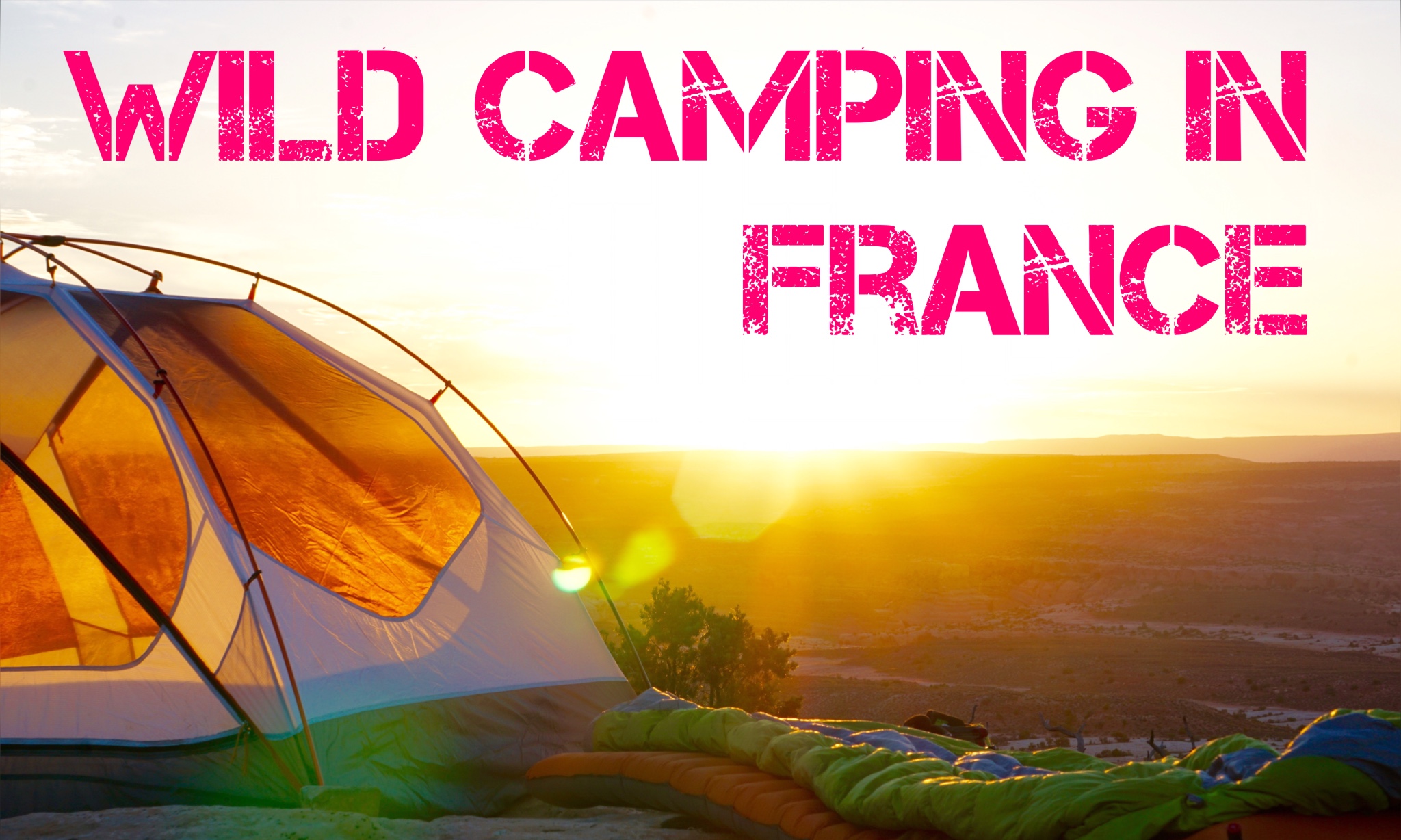
11 Oct WILD CAMPING IN FRANCE. Enjoy your trip into the wilds
In my last travel I had the chance to happily give quite an upgrade to my experience and knowledge about the wild camping in France !!!
In this article I will first share my experience about the subject and than the law and regulations.
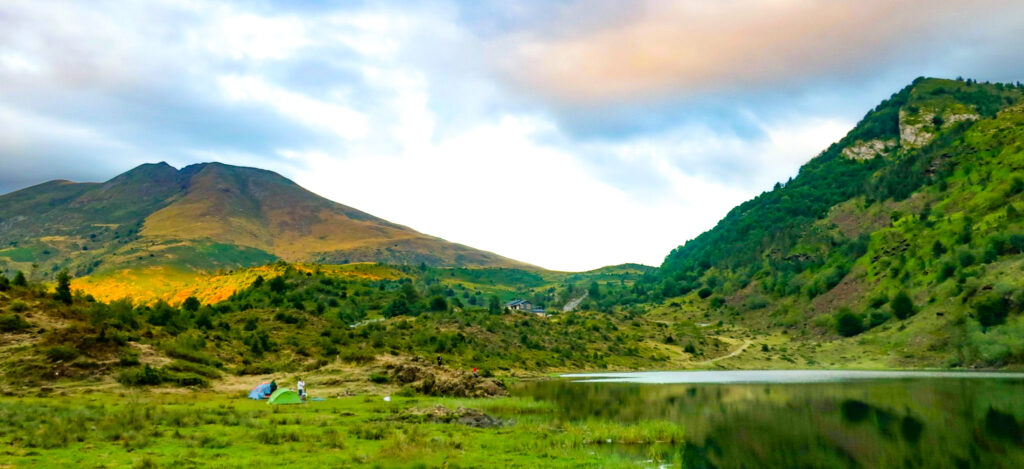
WHAT IS WILD CAMPING ?
Wild Camping, in french called ‘camping souvage’, means camping in remote places with no facilities, rather than on campsites.
Can be a way of saving money, but the fundamental attractions of wild camping are staying in close contact with untouched nature + freedom.
It can be done by travelers in motorhomes, camping cars, RVs and tents.
My experience is with a motorbike + tent, which can be sometimes more challenging than being in a van.
But as I travel by motorbike, that is my best option to sleep outdoors + I love it!
There is no comparison between staying in a closed and regulated area as in regular campings and spend the night in a open area. Waking up to the spectacle of a stunning view you have personally chosen on the go, eventually near the beach, lake, river or just a place in a complete peaceful environment has no price.
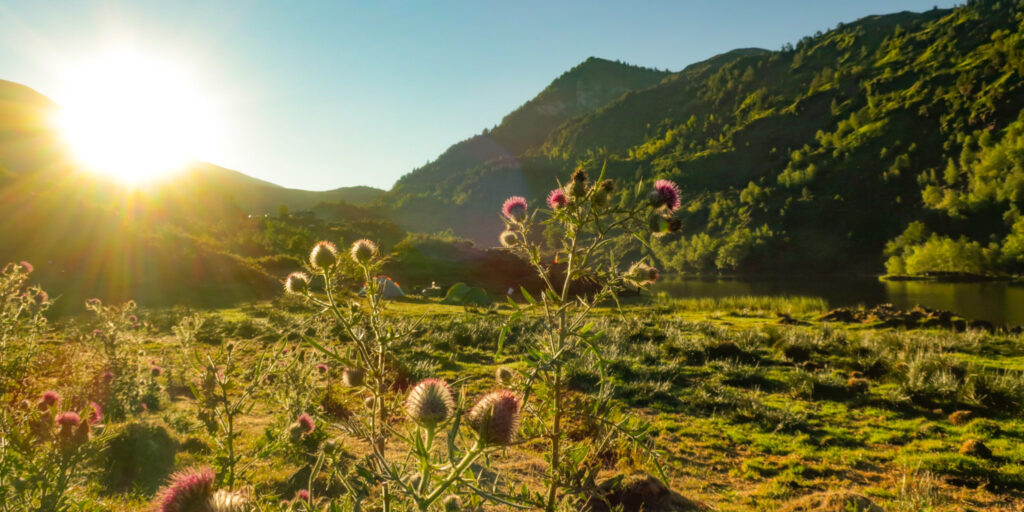
For sure you have to LOVE untouched nature and be easygoing.
Anyway, let’s say you better are a bit passionate about it!
Sometimes can be a little difficult to find the place, most of all if you are tired or/and is getting late.
There are some areas where is super easy to find a place and settle for the night. Other times you might have to drive an extra hour or eventually you will have to give up the search and go in a campsite.
But I assure you, once you get use to it you will become a natural in spotting the perfect sites !
What is Bivouac?
Let’s see some differences between wild camping and bivouac, as bivouac is more largely supported and allowed.
The bivouac is a practice mainly used by hikers, mountaineers, mountain bikers and sometimes moto riders, wishing to sleep and having no other choice but to settle in nature because they are too far from all infrastructures. I would say often even far from paved roads.
Unlike Camping Sauvage, the Bivouac is practiced under the stars, or simply under a very small light tent and in natural places. You will have to settle down at sunset and recollect all your stuff early int he morning.
The goal is to sleep one night before setting off !
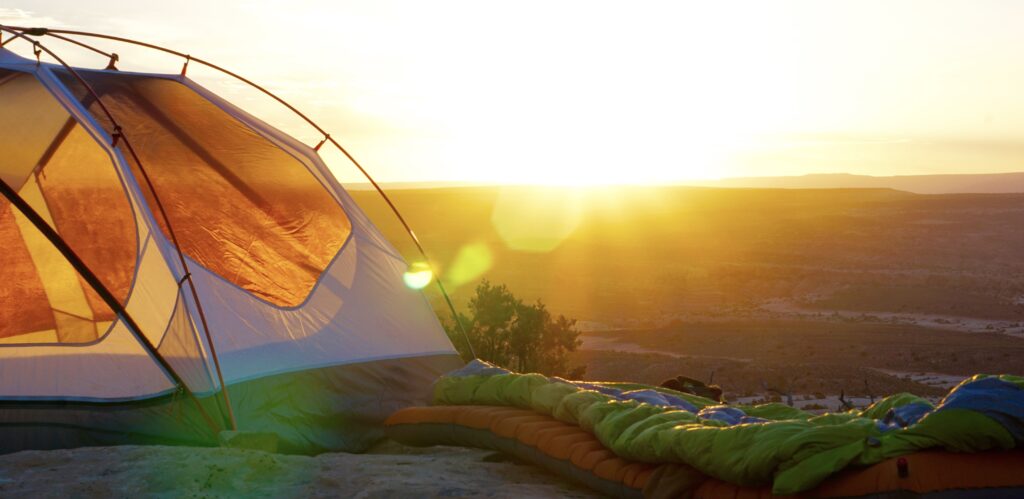
Clearly wild camping and bivouac are different, and you can’t do bivaouc with a van!
In real life, for what I have seen with my own eyes, especially in the Pyrenees mountains, wild camping is largely practiced, but with the rules of bivaouc.
How is that?
Let’s see how it works.
wild camping in france – How really is
Before wrapping our head around complicated legal technicalities I’d like to talk about how really is out there.
You’ll find the law 👇 in the last paragraph though.
Eventually understanding the general law and knowing all the local restrictions and exceptions can get a little hard + energy and time consuming. Especially when you don’t speak the language and know the country.
When you start searching and looking for rules and laws, you might sometimes feel confused, and can feel too complicated or impossible even before to step out your home door.
A LITTLE ABOUT FRANCE
In my experience France, beside being a paradise land for moto traveling, it’s also the paradise land for camping in general, with plenty of different options.
Enjoying nature in all the different possible ways appear to be part of the national culture, as well as having a great respect for their homeland. You won’t find a piece of garbage left behind them.
Coming from Italy, and living in Spain, France appear to me as a country of great respect and more freedom.
Respect and freedom kind of come together in one package.
I can tell that every time I cross the border with France I get a feeling of freedom and peace, that make me relax and enjoy my staying in a unique way.
I just love this healthy way of French people to enjoy outdoor activities.
My direct experience refers specifically to south France.
I have extensively visited Provence in my first road trip. I also have crossed south France from the Italian border all the way to the Spanish border, passing by several natural parks. And last but not least I have made the Transpirenaica crossing countless mountain passes.
But Let’s go back to wild camping
How really is WILD CAMPING IN FRANCE?
Despite being more practiced in some areas rather then everywhere, practicing le camping sauvage it is part of the french culture.
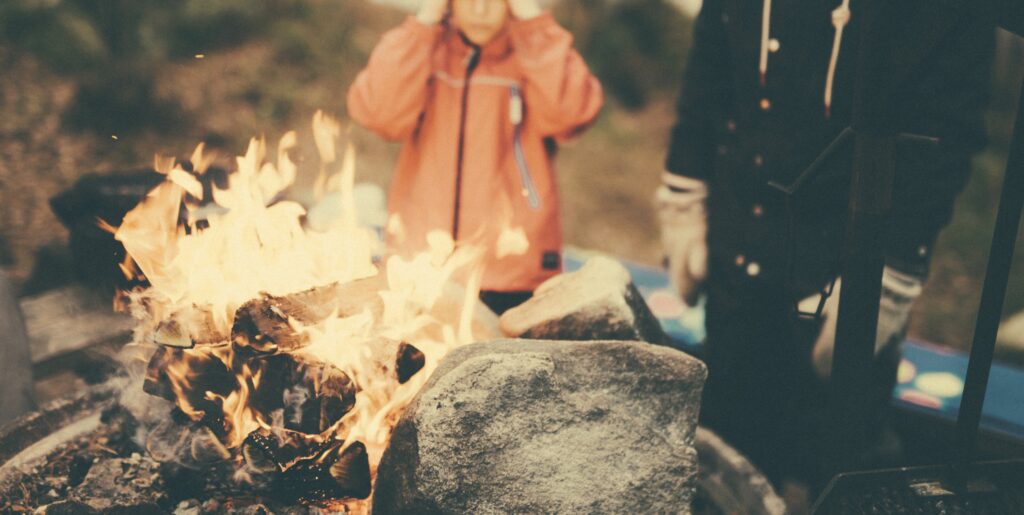
I have seen families with children spending the night in the mountains on the side of a lake, looking at the stars and warming up with the fire, as well elderly couples just set their van on the side of the road.
There is plenty of places where you can spend the night.
When, at the end of the day, you need a place to spend the night, check the map and choose the smallest secondary road you can find. Prefer a small road as far as you can from civilization, and I am sure you’ ll soon find a good place to set up the tent or van for the night.
As the french people respect and enjoy life , especially enjoy nature, the side of the roads are plenty of spots to stop by. And they are used for night stops as well as day stops.
Stopping by the side of the road to enjoy lunch or just a break it’s a typical habit, I’d say a very healthy habit! It caught my attention since the very first time I landed in France.
Going back to wild camping, how comes wild camping is largely practiced, but with the rules of bivaouc?
If you strictly apply the law, wild camping wouldn’t be very much allowed.
In reality it is allowed if you set the tent after 7 pm and pack everything before 9 am, without leaving any sign of your presence behind you. <- VERY MUCH IMPORTANT
Here a list of good Advices on Wild Camping or Bivouac
- BE RESPECTFUL of the living or natural space in which you find yourself.
- Do not spread out too much, minimize your installation. Use lightweight and small tents.
- Before going to bed, don’t leave anything lying around outside (empty bottles, garbage, chairs, etc.)
Do not give the appearance of a squat to potential passers-by! (especially for the authorities)
- Better to arrive late and leave early + only staying one night at the same location!
- Carefully choose your place, avoiding sleeping in large open places (like large beaches…).
- For wild camping on private fields or plots, ask farmers and/or potential owners if you can.
- At the time of departure erase your traces, leave the place cleaner than when you arrived
That’s all 😉
In fact you this advices are good to practices to be applied ever when you go enjoy nature!!!!!
WHAT SAYS THE LAW + A MAP
I have made a research for the specific case of wild camping in France and tracked down the French regulation in the following link.
https://www.lecampingsauvage.fr/legislation-et-reglementation/camping-sauvage-bivouac
As the link below lead to a page available only in french, I decided to make a translation out
Apparently camping is generally forbidden, but bivouac it is allowed in certain cases.

What the law says
Here a full translation of the text
In France, camping is regulated by the section “Camping, development of residential leisure parks, establishment of light leisure dwellings and installation of mobile leisure residences and caravans” of “Decree No. 2015-1783 of 28 December 2015 relating to to the regulatory part of Book I of the Town Planning Code and to the modernization of the content of the local town planning plan”
- Sub-section 1: Camping
- Sub-section 2: Residential leisure parks
- Sub-section 3: Light leisure dwellings: all buildings that can be dismantled or transported, intended for temporary or seasonal occupation for leisure purposes. (e.g. tent…)
- Sub-section 4: Leisure mobile homes: all habitable land vehicles which are intended for temporary or seasonal occupation for leisure use, which retain means of mobility allowing them to be moved by traction but which the highway code forbidden to circulate. (e.g. mobile home…)
- Sub-section 5: Caravans
According to article R111-32,
camping is practiced freely, outside the right-of-way of roads and public thoroughfares, with the agreement of whoever has use of the land, subject, where applicable, to the opposition from the owner.
According to article R111-33,
camping practiced in isolation as well as the creation of campsites are prohibited, except for derogations:
- on the shores of the sea and in the listed sites;
- in classified or pending classification sites;
- in protected sectors, in the field of visibility of buildings classified as historic monuments and parks and gardens classified or registered and having been the subject of a perimeter of protection as well as in the areas of development of the architecture and heritage or, where they still exist, in architectural, urban and landscape heritage protection zones;
- within a radius of 200 meters around water points captured for consumption.
According to article R111-34,
the practice of camping outside developed sites may be prohibited in certain areas:
- by the local urban plan (PLU), or by the urban planning document in its place;
- by order of the mayor.
These prohibitions are only enforceable if they have been brought to the attention of the public by posting in the town hall and by affixing signs at the usual access points to the areas covered by these prohibitions.
National and Regional Parks Regulations
In the page you can find a map of the entire country with all National Parks marked and listed with the regulations on bivouacs.
If you are going to visit one park this might be very useful .
A MAP
Here a map which can help to locate appropriate spots

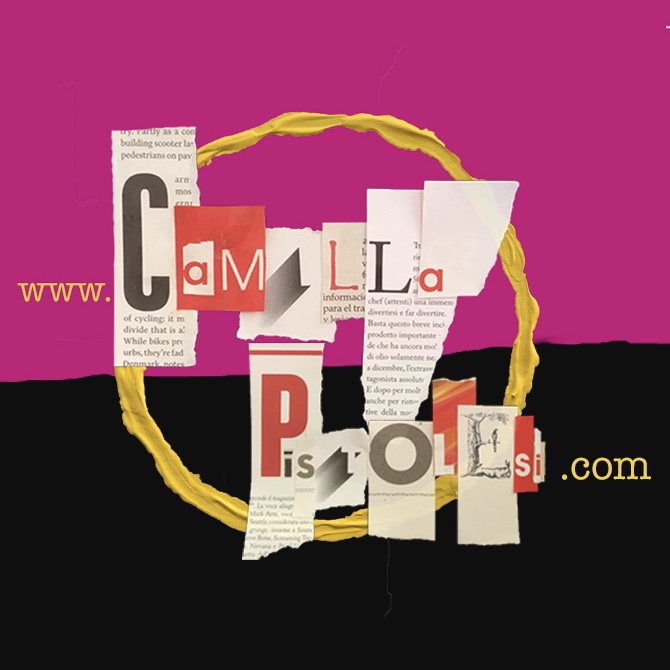
No Comments